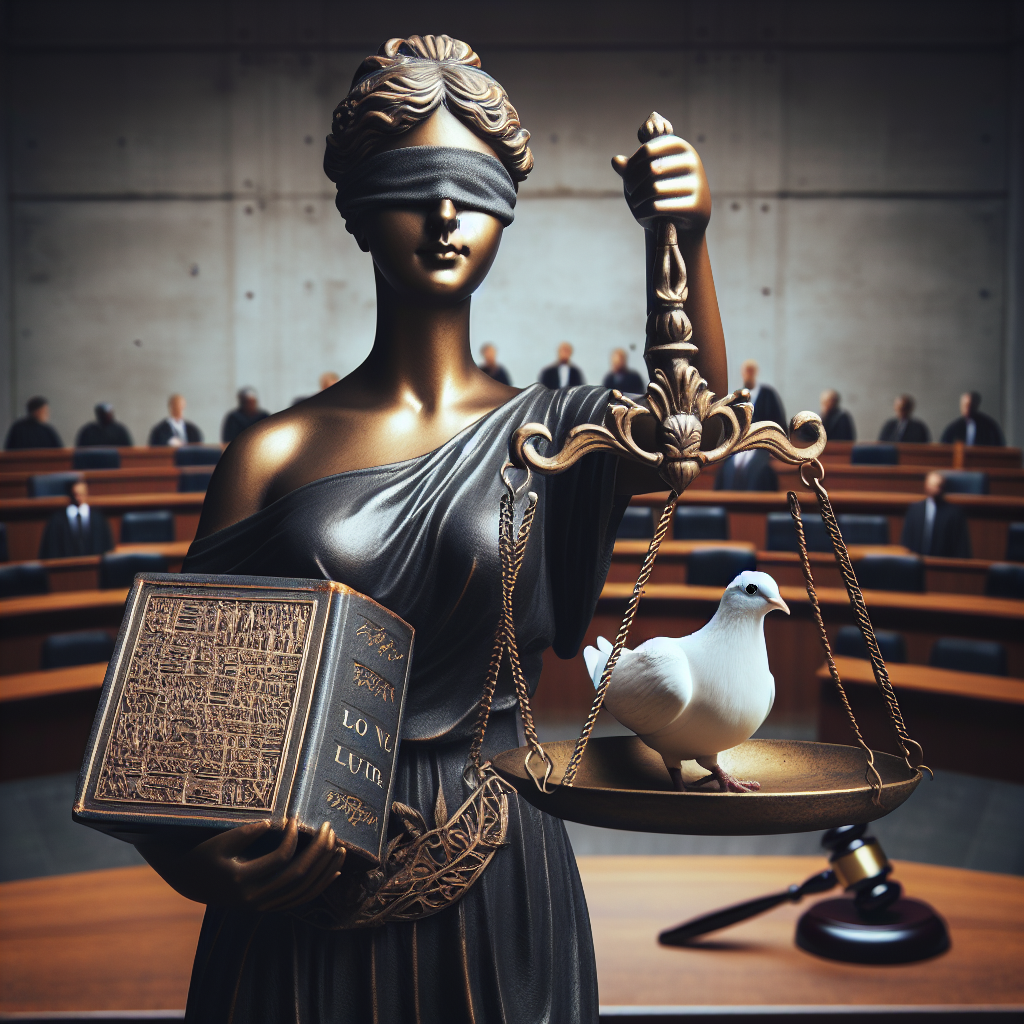
Introduction
In the intricate web of legal frameworks, judicial discretion is a topic that stands at the crossroads of fairness and rigor. As judges interpret laws and make decisions that can have profound effects on lives and society at large, the question arises: how do they balance their inherent discretion with the rigid requirements of the law? Judicial Discretion: Balancing Fairness and Legal Rigor in Decision Making serves as an essential exploration into this complex interplay, shedding light on how judges navigate through the sometimes murky waters of justice.
Imagine a scenario where two individuals commit similar offenses but receive vastly different sentences due to the discretion exercised by the judge. One might argue that this creates inequalities in the justice system, while another might assert that judges must consider individual circumstances to ensure justice is served. This article delves into the nuances of judicial discretion, exploring its significance, the controversies it incites, and the frameworks that guide it.
The Essence of Judicial Discretion
Defining Judicial Discretion
Judicial discretion refers to the power that judges have to make decisions based on their own judgment within the boundaries of the law. It allows judges to interpret laws and apply them to specific cases, considering unique circumstances. At its core, judicial discretion is both a privilege and a responsibility, bearing the potential for broad implications.
The Role of Context
Context plays a crucial role in judicial discretion. Factors like the severity of a crime, background of the defendant, and societal implications can influence a judge’s decision. In practice, this means that a judge may choose to impose a lenient sentence in a case involving a first-time offender while opting for a harsher penalty for a repeat offender.
The Legal Framework Governing Discretion
To understand Judicial Discretion: Balancing Fairness and Legal Rigor in Decision Making, it’s important to consider the legal frameworks that provide guidelines for judicial decisions. Courts operate within statutory and case law, as well as procedural rules.
| Legal Framework | Description |
|---|---|
| Jurisprudence | Previous court decisions that guide current rulings. |
| Statutory Law | Laws enacted by legislatures that must be interpreted. |
| Local Rules | Guidelines specific to individual court jurisdictions. |
These frameworks assist judges in utilizing their discretion while ensuring that their decisions remain grounded in legal rigor.
Case Studies: Judicial Discretion in Action
Case Study 1: The Sentencing of Minor Offenders
In the landmark case of Roper v. Simmons (2005), the Supreme Court ruled against the death penalty for juveniles, arguing that adolescent brains are not fully developed, thereby impacting judgment. This case illustrates how judicial discretion operates within larger frameworks of evolving societal values and scientific understanding. The ruling emphasized fairness, balancing the severity of punishment with the potential for rehabilitation based on age and maturity.
Analysis
This case demonstrates judicial discretion as a tool for societal progress, allowing judges to consider the unique circumstances of individual cases rather than adhering strictly to precedent. By acknowledging the immaturity of young offenders, the court reinforced the principle that justice should also lean towards rehabilitation over retribution.
Case Study 2: Discretion in Family Law
In family law, judges often exercise their discretion in cases of custody disputes. The case of Troxel v. Granville (2000) showcased how judges must balance parental rights with the best interests of the child. Here, the Supreme Court ruled against state laws that allowed third parties to overstep parental rights, emphasizing that parents have a fundamental right to raise their children as they see fit.
Analysis
Judicial discretion in family law hinges on a nuanced understanding of fairness—emphasizing the intimate knowledge that parents have regarding their children’s needs. Judges must carefully navigate between legal guidelines and the individual realities of parental circumstances, showcasing the delicate balance required in such decisions.
The Controversy Surrounding Judicial Discretion
Arguments for Judicial Discretion
Proponents argue that judicial discretion is essential for a flexible legal system that can adapt to varying societal contexts. It allows judges to:
- Consider unique circumstances of each case.
- Avoid rigid and potentially unjust outcomes.
- Promote the principles of fairness and equity.
Arguments Against Judicial Discretion
Conversely, critics contend that excessive discretion can lead to inconsistency and unpredictability in the legal system. They argue that:
- Discretion can be misused, leading to biased outcomes.
- Varied interpretations of the law can create disparities.
- The rule of law may be compromised, eroding public trust in the judicial system.
Striking the Right Balance
Guidelines for Effective Judicial Discretion
To mitigate the potential pitfalls of excessive discretion, several guidelines can assist judges in making fair and consistent decisions:
- Comprehensive Training: Ongoing education about legal precedents, community standards, and implicit biases.
- Use of Guidelines: Utilizing established sentencing guidelines or frameworks that help standardize outcomes.
- Community Engagement: Engaging the community to understand societal values and expectations helps judges align decisions with public sentiment.
The Role of Technology
Today’s use of data-driven analysis can also enhance fairness in judicial discretion. For example, algorithms that analyze past sentencing patterns can help judges make more informed decisions, identifying potential biases that exist within their discretion.
The Impact of Judicial Discretion on Society
The ramifications of judicial discretion extend beyond the courtroom, influencing public perception of the justice system. When judicial discretion leads to perceived inequities, it can erode public trust. However, when exercised wisely, it fosters a sense of achievement in justice, as it demonstrates an understanding of the complex, often unique narratives that exist within each case.
Conclusion
Judicial Discretion: Balancing Fairness and Legal Rigor in Decision Making is a delicate dance of rights, responsibilities, and interpretations of justice. As we have explored through various case studies and frameworks, the exercise of discretion can promote fairness but also risks potential inequity. Striking the right balance requires diligence, awareness of societal values, and a commitment to ongoing accountability.
To all who engage with the legal system—from litigants to judges—the takeaway is clear: judicial discretion, when wielded judiciously, can assure that justice is not only done, but is seen to be done. For a more equitable future, it is imperative that we all advocate for a legal system where fairness and rigor coexist harmoniously.
FAQs Section
1. What is judicial discretion?
Judicial discretion refers to the power judges have to make decisions based on their judgment and interpretation of laws while considering individual case circumstances.
2. Why is judicial discretion important?
Judicial discretion is vital for adapting the law to unique situations, promoting fairness, and ensuring that justice reflects societal values and individual circumstances.
3. How can judicial discretion lead to inconsistencies?
Excessive judicial discretion can lead to variations in sentencing and outcomes due to personal biases or differences in interpretation, resulting in perceived inequalities in the justice system.
4. What are some guidelines for exercising judicial discretion?
Guidelines include comprehensive training for judges, adherence to sentencing frameworks, and community engagement to ensure decisions align with societal standards.
5. How does technology play a role in judicial discretion?
Technology, including data analysis and algorithms, can assist judges in making informed decisions by highlighting precedent patterns and helping identify possible biases.
In summary, the journey of Judicial Discretion: Balancing Fairness and Legal Rigor in Decision Making invites us to critically assess how much discretion should be allowed within the justice system and the measures necessary to keep it both fair and principled. As society evolves, so too must our understanding and application of discretion within the legal framework.















